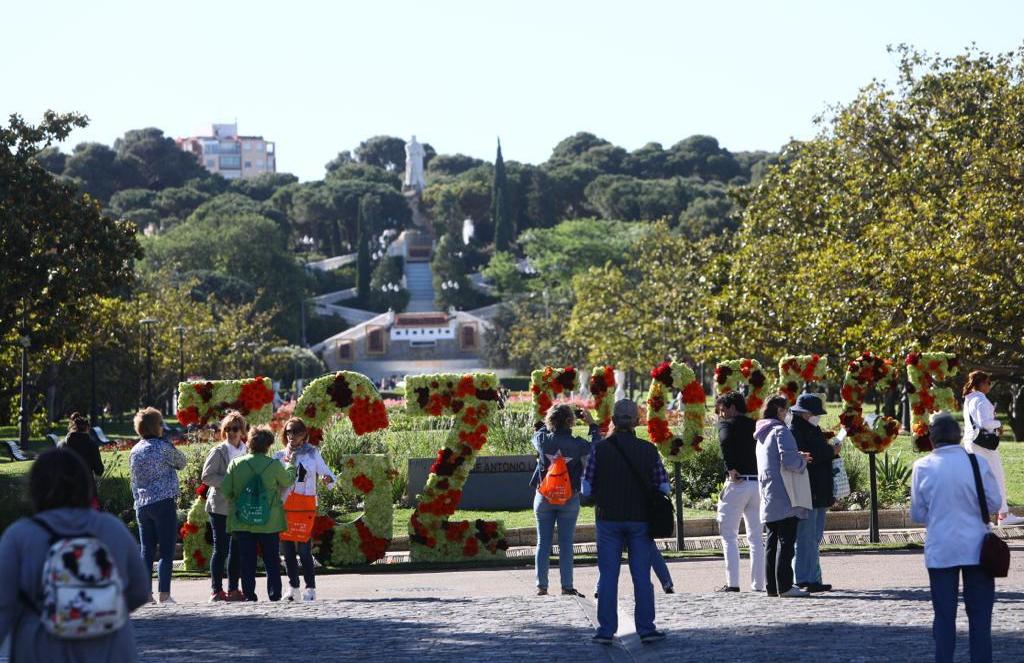Thessaloniki gets ready for its metro launch in November
The underground rapid transit lines have been under construction for almost two decades due to various project delays
 TheMayor.EU logo
TheMayor.EU logo 
Zaragoza Florece has now become an important annual event on the city's calendar, Source: Ayuntamiento de Zaragoza
This initiative seeks to integrate the values of the New European Bauhaus into the European Commission’s 100 Cities Mission
Zaragoza’s path to transitioning into a climate-neutral city must be accompanied by principles of beauty and inclusivity. That is the main takeaway from the news that came in last month that the Spanish city has been selected to join the CrAFt Cities initiative (Creating Actionable Futures).
That project, financed by the European Commission, seeks to integrate the values of the New European Bauhaus – beautiful, sustainable, together – as an inextricable part of the climate-neutrality transformation of European cities. More specifically, Zaragoza was chosen thanks to its Zaragoza Florece flower festival and the initiative to renaturalize the banks of the local Huerva River.
For this purpose, 60 out of the 100 Climate-Neutral and Smart Cities were picked to co-develop additional initiatives and experiments as a way to show that climate transformation can be socially and aesthetically meaningful to urban residents as well.
Zaragoza’s nature-focused projects are examples of present and future transformative actions aligned with the objectives of sustainability, inclusiveness and improvement in the quality of life. All these criteria coincide with the objectives of the New European Bauhaus.
“In this context, the European Commission has financed the CRAFt cities project and has selected Zaragoza not only because it is a city that is committed to climate neutrality, but also because it has two examples of city projects that seek transformation with quality of life of its citizens in mind, highlighting, above all, the aspects of sustainability and a better quality of life,” explained Blanca Soláns, the City’s Director of European Funds, who was responsible for putting forward the application of Zaragoza for the CrAFt Cities club.
The European initiative combines several goals: commitment to climate neutrality, commitment to culture and art as transformative tools for cities and societies, and defence of inclusive policies. This is a project valid until the year 2025.

The underground rapid transit lines have been under construction for almost two decades due to various project delays

Now you can get your wine in Talence by paying directly in Bitcoin

That’s because the state has to spend money on updating the railway infrastructure rather than subsidizing the cost of the popular pass

Rethinking renewable energy sources for the urban landscape

The examples, compiled by Beyond Fossil Fuels, can inform and inspire communities and entrepreneurs that still feel trepidation at the prospect of energy transition

Now you can get your wine in Talence by paying directly in Bitcoin

The 10th European Conference on Sustainable Cities and Towns (ESCT) sets the stage for stronger cooperation between the EU, national and local level to fast track Europe's transition to climate neutrality.

At least, that’s the promise made by the mayor of Paris, Anne Hidalgo

The underground rapid transit lines have been under construction for almost two decades due to various project delays

At least, that’s the promise made by the mayor of Paris, Anne Hidalgo

Hostal de Pinós is located in the geographical centre of the autonomous region

Despite its church-y name, the district has long been known as the hangout spot for the artsy crowds

Urban dwellers across the EU are having a say in making their surroundings friendlier to people and the environment.

Forests in the EU can help green the European construction industry and bolster a continent-wide push for architectural improvements.

Apply by 10 November and do your part for the transformation of European public spaces

An interview with the Mayor of a Polish city that seeks to reinvent itself

An interview with the newly elected ICLEI President and Mayor of Malmö

A conversation with the Mayor of Lisbon about the spirit and dimensions of innovation present in the Portuguese capital














